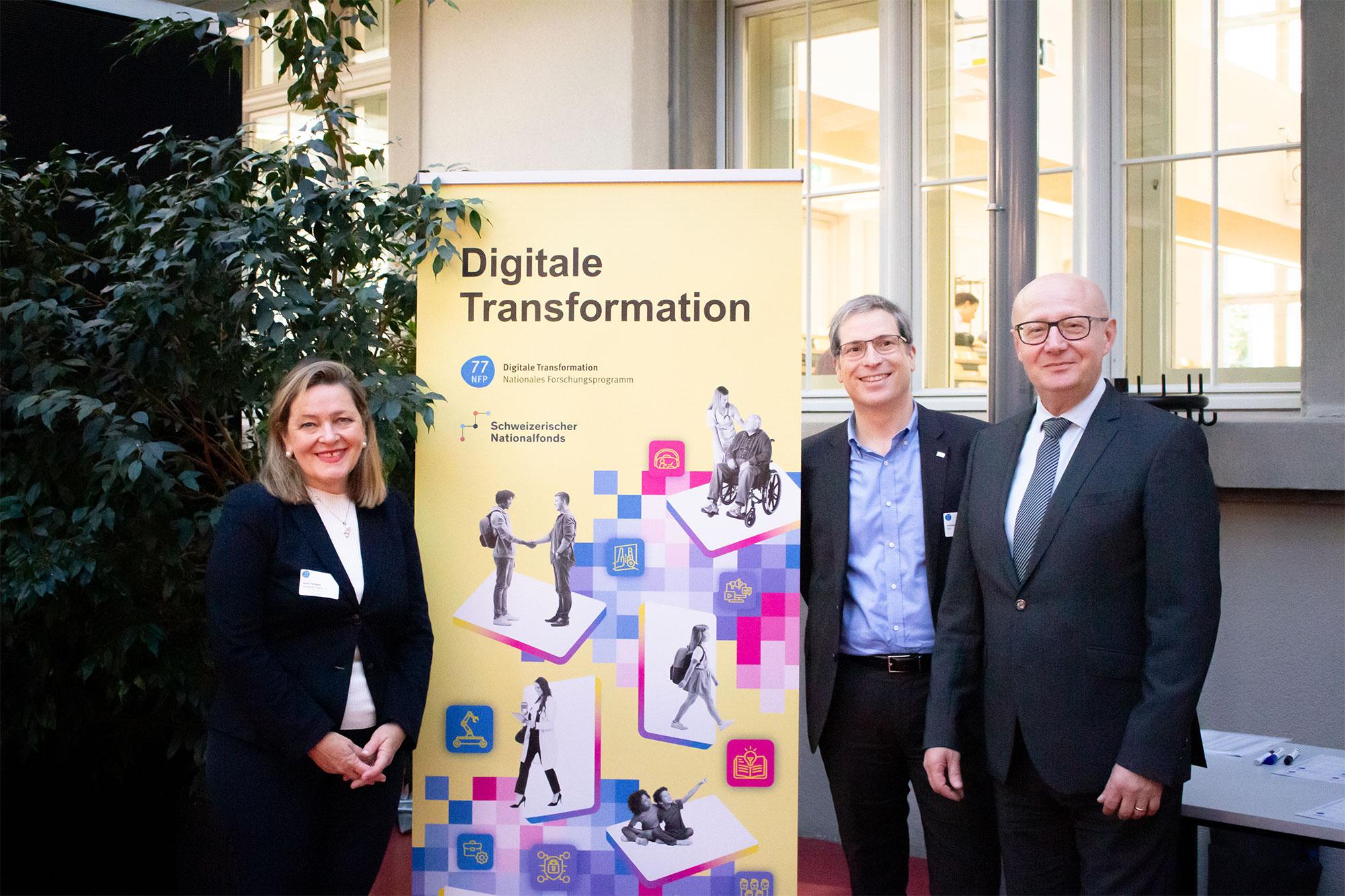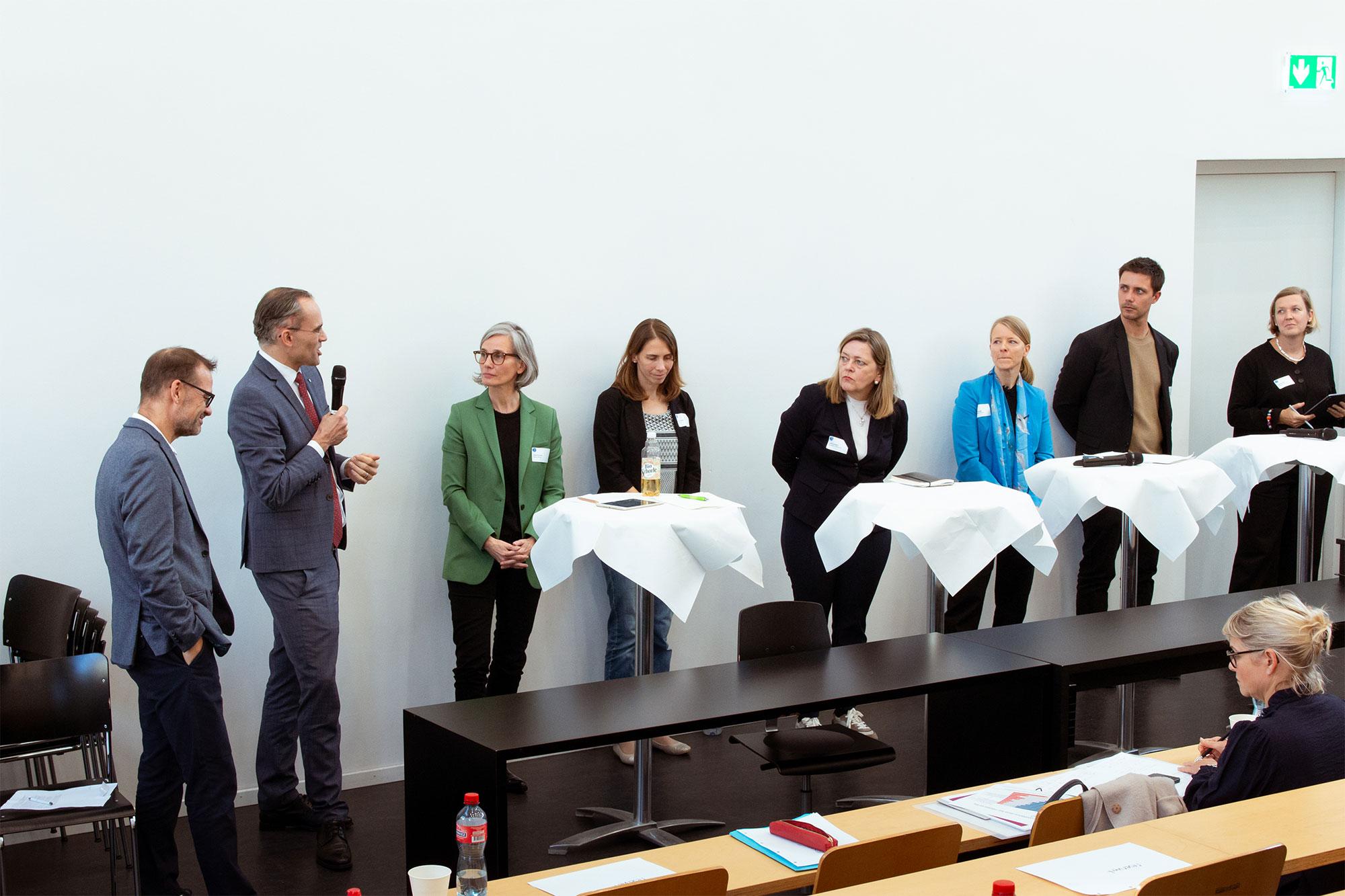Research for democracy: presentation of selected projects

At the end of October, researchers and real-world practitioners discussed changes in democratic processes as a result of the digital transformation during the NRP 77 dialogue events. Here is a summary.
Digital transformation is creating new challenges for democracy. The changing media landscape has pushed traditional media channels such as newspapers and television into the background, while social media and online platforms have become more dominant. Information – often unverified – is now shared more quickly, which helps the spread of misinformation. Political discourse is also increasingly moving onto social networks, which are less regulated than traditional media and therefore have fewer control mechanisms for quality and transparency.
These developments call for new approaches to ensure transparency, plurality and participation. These processes are being investigated in 16 projects within the framework of NRP 77 “Digital Transformation”.
Together with the Federal Chancellery, NRP 77 held a dialogue event on 25 October 2024 to discuss the results of individual projects. In his introduction, Federal Chancellor Viktor Rossi clearly stated that “the state is responsible for ensuring a diverse media landscape so that citizens can continue to access trustworthy sources of information.” He also referred to the challenges posed by social media: “We don't yet exactly know how they actually influence the political opinion-forming and level of information of voters ahead of elections and referendums, and what effects they have on democracy, whether positive or negative.” The research projects presented are thus also aimed at these gaps in knowledge.
In her contribution, Sina Blassnig presented how the NRP 77 team lead by Fank Esser investigated the use of news recommendation systems (NRS) in the media. These systems provide readers with personalised recommendations based on their reading habits and those of similar users. Their investigation showed that readers generally have a positive attitude towards these NRS, and that they overestimate their significance. News recommendation systems are currently not very widespread in Switzerland. Sina Blassnig concludes that: “To avoid damaging people’s trust in the media, NRS need to be guided by journalistic criteria, and there needs to be transparent disclosure of their algorithms and user control capabilities.”
In their project, Nathalie Giger and Maxime Walder looked at the question of whether the digital transformation poses a danger to democracy. They analysed how Swiss voters obtain information online ahead of elections and referendums, i.e. how they use media portals, social media, blogs and other sources of information. Among other things, they found that traditional media are still highly valued when it comes to forming opinions, and that they also enjoy a great deal of trust. At the same time, the internet offers the possibility of finding a wider range of information – an option that is actively used. The researchers therefore see the digital transformation as both a challenge and an opportunity.
Regula Hänggli and her team examined how digital tools can be used successfully for participation. Because involvement from different perspectives can provide a way to achieve legitimate and trustworthy political decisions together. To do this, they carried out real-world experiments in Canton Aargau and were able to gain valuable insights into how digital citizen participation could be successful.
Using a different approach, Marc Bühlmann’s research group investigated how digitalisation can be used to strengthen democracy. In the town of Köniz, they created a 'Democracy Factory' in which a representative group of selected people were able to discuss various issues online. The project reported a high level of participation and resulted in citizens contributing new ideas to the political discourse.

These discussions clearly showed that digital transformation poses a major challenge while also providing numerous opportunities. It is thus neither a danger to democracy nor the solution to all our problems. In fact, the democratic institutions are already changing. E-Collecting, electronic identity and eVoting are all set to permanently change the way in which we structure and live out democracy in Switzerland. However, the change in the media does give cause for concern: Fears include an increase in misinformation, the polarisation of society, and the strong influence of algorithms on public discourse. All of this undermines trust in reliable information and weakens well-founded democratic debate.
